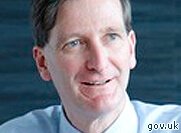An “aggressive form of secularism” is pushing faith out of the public square, the former Attorney General has warned.
Dominic Grieve told The Telegraph that there is a “sanitisation” of religion from the workplace, which will lead to people being “excluded” from society.
“Recognising people’s right to manifest their faith and express it is very important”, he said.
Public space
Grieve commented: “I worry that there are attempts to push faith out of the public space. Clearly it happens at a level of local power.
“You can watch institutions or organisations do it or watch it happen at a local government level. In my view it’s very undesirable.
“Some of the cases which have come to light of employees being disciplined or sacked for simply trying to talk about their faith in the workplace I find quite extraordinary.
Sanitisation
“The sanitisation will lead to people of faith excluding themselves from the public space and being excluded.
“It is in nobody’s interest that groups should find themselves excluded from society.”
Grieve also highlighted Christianity’s “enormous role in shaping this country”.
Powerful force
He said the Christian faith is a “powerful force” that is “underrated”.
Earlier this year, Grieve said that atheists who claim Britain is not a Christian country are “deluding themselves”.
He made the comments in response to a letter, co-signed by 55 public figures, which said “we are a largely non-religious society” and claimed that David Cameron is fostering “alienation and division” by labelling Britain as Christian.
Underlying ethics
Mr Grieve explained: “As I go around and look at the way we make laws, and indeed many of the underlying ethics of society are Christian based and the result of 1500 years of Christian input into our national life. It is not going to disappear overnight.”
In April, a survey of 2,000 people for The Telegraph suggested that Christians are afforded less protection for their beliefs by the state compared to those who practise other religions.

